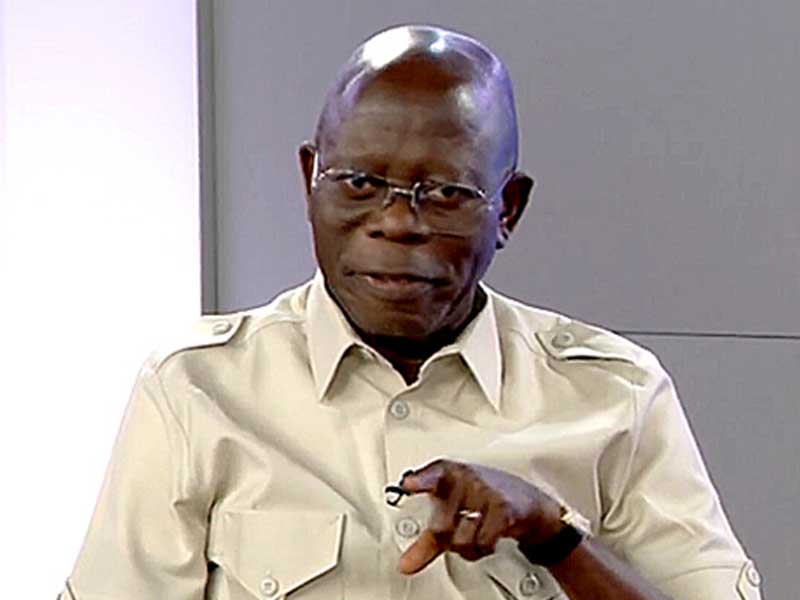The senator representing Edo North Senatorial District, Adams Oshiomhole, on Wednesday, said the current generation of workers in the country is much poorer than those in the past.
According to him, the celebrated N70,000 minimum wage, when converted to dollars, is equivalent to $42.
The former Nigeria Labour Congress president, comparing the first minimum wage in the country under President Shehu Shagari, noted that the N125 minimum wage at that time was equivalent to $160.
Oshiomhole spoke during a lecture organised for members of the Executive Intelligence Management Course 17 at the National Institute of Security Studies in Abuja.
He said, “When minimum wage in Nigeria was established under President Shagari, I think around 1981, it was around N125 which was about $160 a month.
“Today, with the fat increase, the 100 per cent increase that the labour achieved last year, which is now being implemented this month, according to our current exchange rate, is $42.
“So if you divide N70,000 by N1,650, it gives you $42. The working people are much, much poorer now than we were so many years ago. So this opportunity will depreciate, and that affects the quality of life and everything.”
Oshiomhole also said the Federal Government and other states generating high revenues should pay workers more than the agreed N70,000 minimum wage.
He recalled how he declared a strike to compel the Lagos State government under Bola Tinubu to pay above the N5,000 minimum wage during his time as the NLC president.
He said, “A serious employer of labour should not pay minimum wage. They should pay much more. A major employer, like the civil service, should not pay the minimum wage. I expect that the Federal Government will, over time, adjust their minimum wage.
“When I was NLC president, we agreed that oil-producing states like Delta, Bayelsa, Rivers, Akwa-Ibom, Lagos and those who have a huge revenue should pay not less than N7,000 minimum wages, the same as the federal.
“Interestingly, when we pursued this policy, the president was the governor of Lagos State. He showed me all the books and told me he could not afford to pay. I had to compel him.
“We organised strikes against this president, asking that he should use all the money necessary to pay salary, even if he can’t do any other thing.
“That’s my business. My brief was not to go and sympathise with the employers. My brief is to get them to squeeze out anything we can squeeze out.”
Oshiomole also called for the expansion of minimum wage law to domestic staff, among others, through the amendment of the law.
He said, “But again, if you look at the law in Nigeria, which I hope will be able to amend very soon, although the Federal Government and the states have agreed on a minimum wage, for example, at N70,000, there are still people who are paying less than that, even under the law, because it says you have to have about 25 to 50 employees minimum for that law to be applicable to a particular enterprise.
“But with the changing technology, a small ICT company employing 10 people can generate so much turnover. So, using the number of employees was appropriate when the economy was more broad-driven, not with ICT.”
He also explained that the wages in other countries, especially in California in the United States, could be fuelling the Japa syndrome experienced in the country.
According to him, an unskilled worker could earn as high as $2,560 in a month in California.
He said, “If you check with Google, you’ll find that California minimum wage as of today is $16 an hour.
“So if a worker works for eight hours a day as we do in Nigeria, eight hours will give you $128 a day. In a month, if you work for five days a week, for four weeks, you work for 20 days, you earn $2,560 in a month.
“That is the minimum wage for unskilled labour. How much does that translate to in a month if you convert by exchange rate?”
Expressing hope that the country would prosper despite the hardships faced by citizens, he urged the government to watch some of its policies.
He said, “Today, I mean, we are going through a challenging period, but as we say, tough times don’t last, tough people do. Nigerians are tough. This time will pass, and prosperity will be here again.
“We just need to watch our policy choices so that the gains of the past are not lost.”

